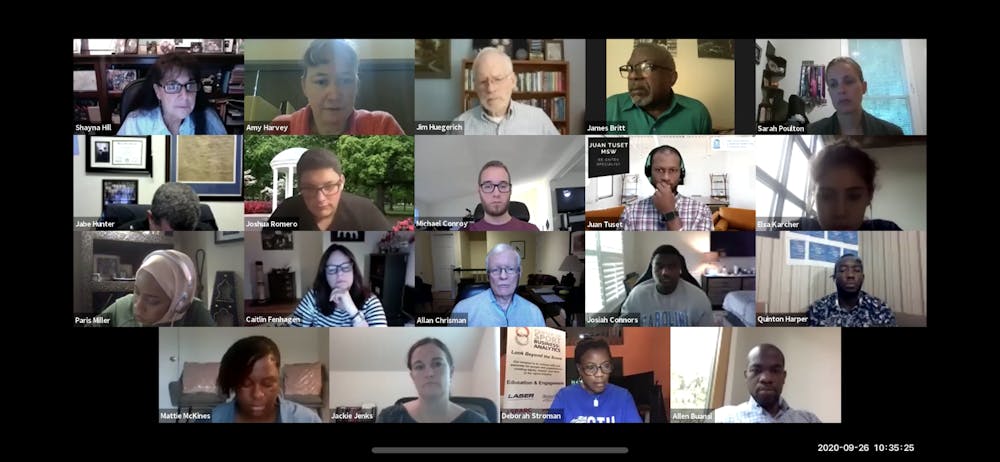Community members from across Chapel Hill attended the Community Policing Advisory Committee's roundtable to discuss the future of public safety in a time when many said they felt an irreparable distrust toward the police.
The discussion came three days after indictments were released for the police officers in the Breonna Taylor case, and after several months of protests against police brutality across the country.
Paris Miller, vice-chairperson of CPAC, said the goals of the Sept. 26 roundtable were to increase community input, discussion and response around safety in Chapel Hill, in addition to creating cross-community dialogue.
"(It’s) to hopefully bring about some recommendations for the revision of CPAC’s charge to increase police oversight and facilitate stronger connections with the community and town council in order to promote actionable insights that influence policy changes around policing and safety,” she said.
The meeting then broke off into a series of virtual break-out rooms to discuss the experiences of Chapel Hill citizens with the police. In one group, the conversation centered around distrust individuals within Chapel Hill felt toward the police department.
One community member shared that she had heard shouting from her neighbor's apartment and felt concerned, but was too afraid to call the police because she knew one of the individuals in the encounter was a Black man.
Other members within the group said they felt this distrust could not be rectified from police reform, but rather required a reimagining of justice within Chapel Hill. Deborah Stroman, resident and UNC professor, said CPAC is the eyes and ears for Chapel Hill, but she was unsure whether or not the committee should be the hands to provide a slap on the wrist.
Stroman said CPAC has no ability to discipline the CHPD, and during the meeting, members of the community continually expressed concerns about police accountability.
“If police are scared to hold other police accountable, then how are we as citizens going to feel okay, feel empowered or have any sort of confidence our grievances will lead to any meaningful change,” Juan Tuset, a Chapel Hill resident, said.



